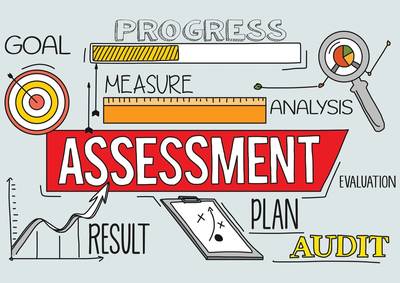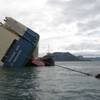Training Tips for Ships - Tip #19: Assess Always
In last month’s Training Tips for Ships, we spoke about the value of creating a culture of learning. Even though many organizations have yet to achieve a healthy learning culture, the concept itself is not controversial. The value is self-evident and universally understood.
This month, we go a little further to discuss a culture of assessment. And while some readers may bristle at the idea of near-ubiquitous workplace assessment, the idea is a natural consequence of implementing a culture of learning. How can a culture of learning be shown to be effective if we do not assess? It cannot be. Here we will discuss why a culture of assessment is important, what it entails, and the key to ensuring it is viewed as an asset by your officers and crew.
Why is a culture of assessment important? The answer is because if learning is important, then assessment is equally important. Most directly this is true because there is no accurate way of determining whether our learning activities are having their desired effects unless we assess our learners. Learning activities, in the absence of assessment, are like a vessel without a compass, charts or ECDIS. We can point the vessel in a direction and engage propulsion, but there is no way to know whether we are getting closer to our goal. Assessment tells us whether our learning activities are working.
Assessment tells us whether people have the knowledge and skills they need to perform efficiently and safely. Assessment provides metrics that support continuous improvement. Assessment helps to establish a culture of goal setting, pride, career advancement and accomplishment. Assessment creates opportunities for discussion, employee engagement, and feedback. And assessment, paradoxically, takes the stress out of assessment; if it is done in a context of positive and supportive values, then it becomes commonplace and simply part of the how we improve.
But how do we de-stress assessment and create a positive and productive view of being assessed? There are many aspects to this, but the key is demonstrating a deep commitment to using assessment to support employees rather than penalize them.
Officers and crew must understand what is being done, how it will be done, why it is being done, and most importantly, how it will benefit them as individuals. They must understand that these assessments are part of a supportive company culture and that they are separate from any required promotional or regulatory assessment. These assessments will be used only to target professional development, to create new career advancement opportunities, and to continually improve company safety and performance. They can never be used punitively.
In this way, when assessments are supported by a culture of growth and learning, not a punitive culture, they can be viewed as professional growth opportunities. Furthermore, these “supportive” assessments will make the performance of any required promotional or regulatory assessment much more successful and stress free.
So, what, and when, do we assess? The short answer is to assess whenever the opportunity arises, making it simply a part of how work is done. Assessments can be done regularly using short, possibly randomized (though targeted) online exams. Drills are also an excellent and often overlooked opportunity for team and individual assessment. All training exercises should be assessed. And, of course, on the job performance provides numerous opportunities for assessment as nearly every task could potentially be assessed. The only limit is making someone available to perform the assessment. This often falls to training officers or other training personnel. But peer assessment, where coworkers assess one another, is also an excellent model for supportive assessments. These are all opportunities for discussion and learning.
Establishing a culture of assessment is a large topic which warrants further discussion and consideration beyond the scope of a short article. Hopefully, however, this helps stimulate that discussion.
Until next time, sail safely and keep healthy!







